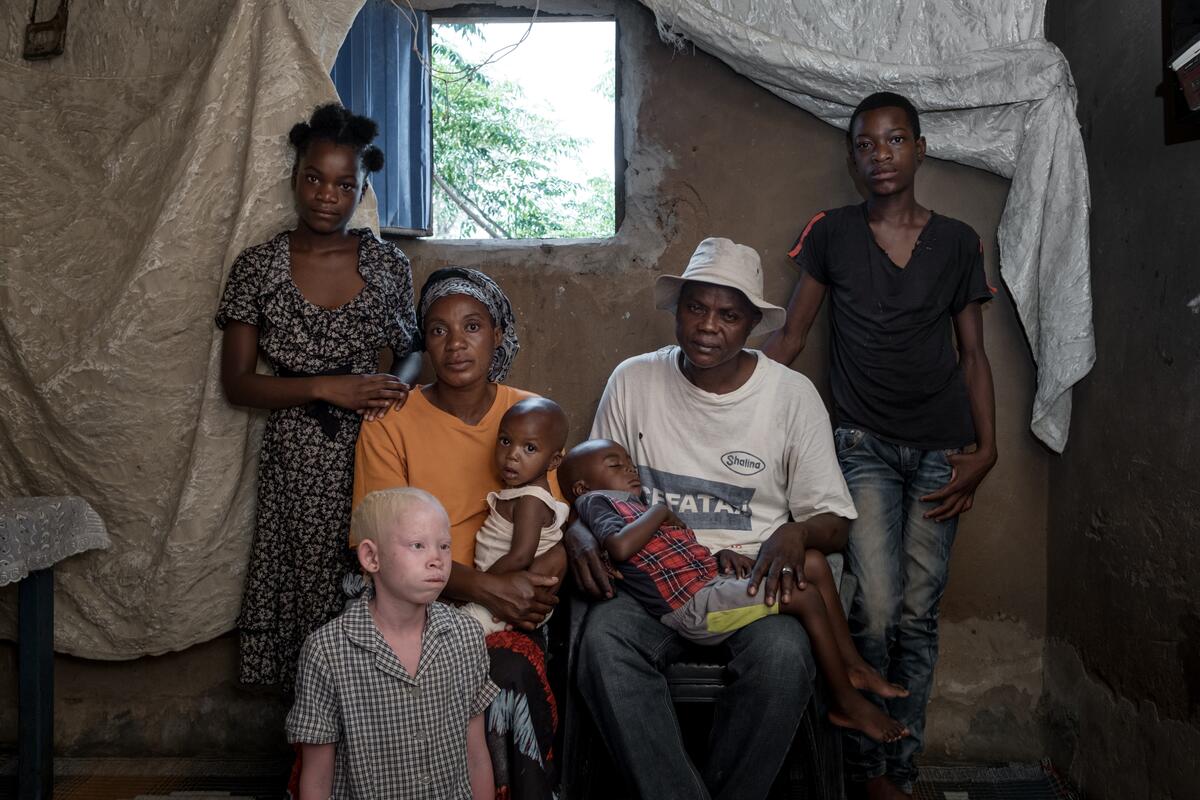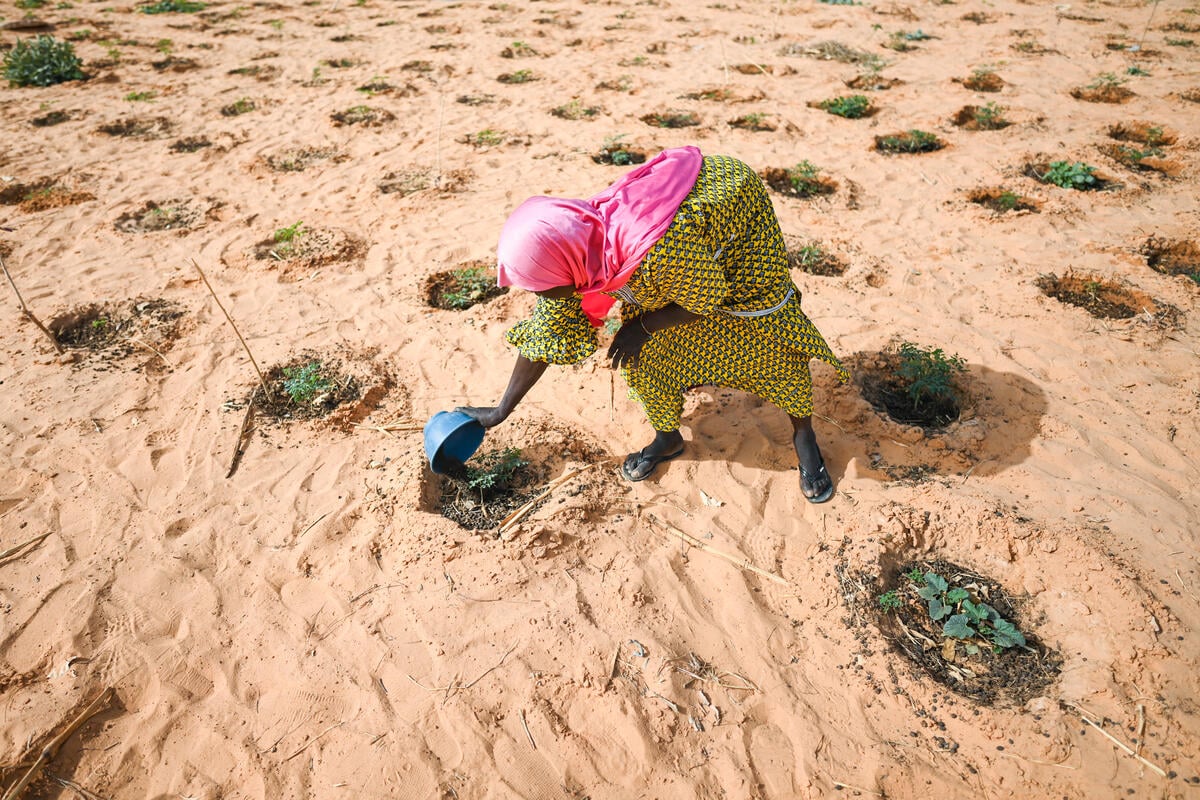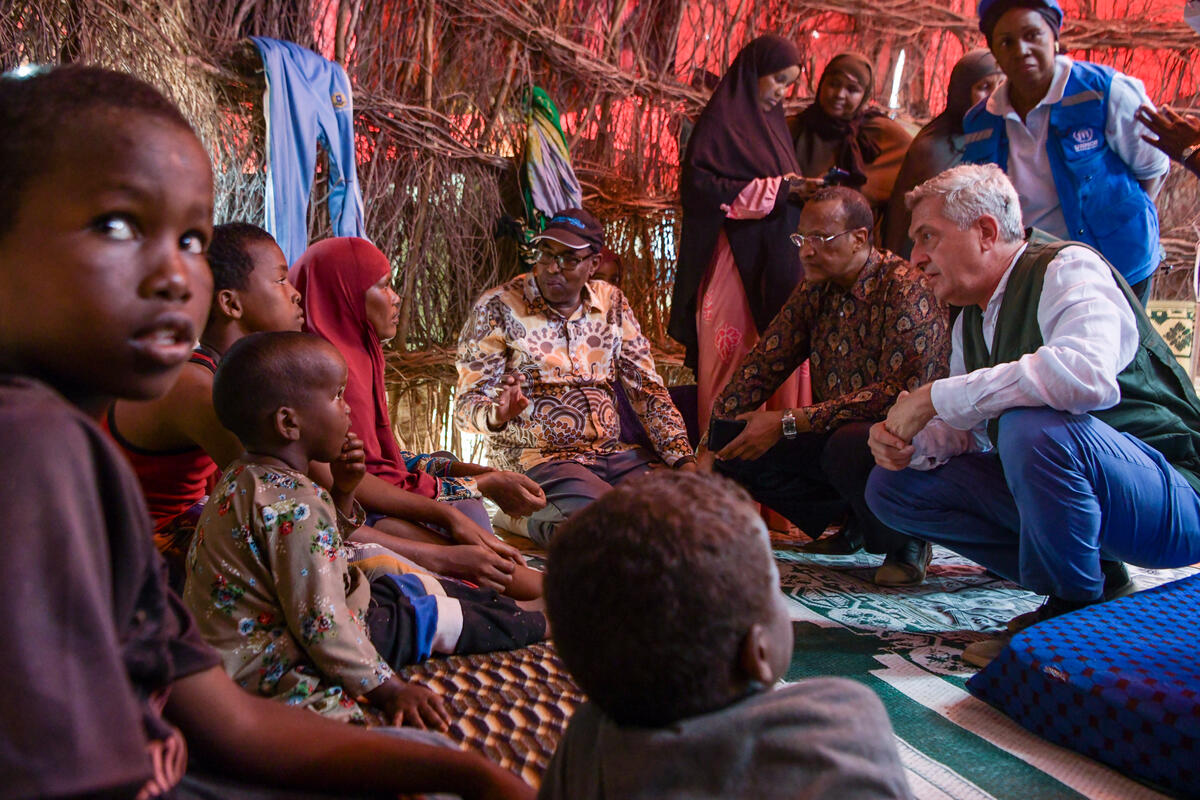Q&A: Syria's Eastern Ghouta 'on the verge of major disaster'
Q&A: Syria's Eastern Ghouta 'on the verge of major disaster'

BEIRUT, Lebanon – UNHCR’s Representative to Syria, Sajjad Malik, accompanied a humanitarian aid convoy that entered the besieged Syrian enclave of Duma in Eastern Ghouta on 5 March where he met some of the 393,000 people trapped there for the past five years. Afterwards, he spoke to UNHCR’s Head of Communications, Melissa Fleming, and described the conditions he witnessed.
You are our representative in Syria, you’ve been there for two-and-a-half years, and you just spent some time in Eastern Ghouta. What did you see when you walked through the streets of Eastern Ghouta?
It’s on the verge of a major disaster because you walk in that town and you see destruction, you see displacement. There are dead bodies still in destroyed buildings. The smell is very strong in those areas. There are people who are living in overcrowded basements. People coming out of those basements when we were there – it’s hard to describe them. Their pale skin, you could see rashes on their skin, you can see that they’re stunted. Kids who will tell you they are aged 12, 13, 14, look like 6, 7, 8 years of age. They’re very, very small.
And then the trauma that they go through – it’s constant shelling, living in fear, not knowing what’s going to happen. In other places that are besieged and there’s no food, you can bring some assistance. But here we were not even sure what to bring to these people. We brought some food, but even that was not enough.
The solution – of course, they desperately need food, they desperately need medical assistance, medical supplies – but what they most desperately need is an end to the shelling, the bombing, and they need safety.
They are scared. They told me that they fear this bombing, which happens constantly, they fear hunger. They’re seeing their kids suffering. But they fear most what is yet to come – they are not sure what is going to happen.
There are people who you spoke to who said: “Actually, I would like to leave”. What is hindering people from leaving?
One is the safety, that they can exit safely. This is from the checkpoints. Second, when they arrive there in government-controlled areas, that they are secure, that they are not then faced with another situation. They told me: “We’re running for our lives from here, and the last thing we want to find is death on the other side.” So, they want to leave the place safely … arrive in areas where they will be safe, and lastly they would like to return home when the situation improves.
They are facing an aggressive military action, which is taking place right now. There are also armed groups inside who are resisting and fighting, and there are groups that are fighting amongst themselves. So, the civilians who are caught in this situation, they have nowhere to go.
They must be terrified.
I’ve never seen such scared faces in my life that I’ve seen there. You have to find words to describe what that means, what that fear is. You can see it in their eyes, you can see it in their expressions. But they’re also desperate for someone to come and help them out.
You walked through the town, you saw terrible destruction. One of the buildings you stopped at, you asked a question to a man who was standing outside. What did you ask?
This was a building, I was walking around with a doctor near an SARC (Syrian Arab Red Crescent) clinic, and there was a very strong smell, and the doctor suggested that we did not go further. And I said, “This smell is very strong”, and he said those are bodies still in that rubble. I stood there for a while and looked at that building – this was a five-storey building, totally collapsed – and I asked how many people are buried in there. He said, “There are three bodies in there”.
Then I heard someone behind me say “no, there are not three, there are four”. I looked back and this gentleman explained that his wife, his daughter, his son-in-law and his brother were buried in there. He still had some hope that the bodies would be recovered, that he can then have closure, he could bury them and move on with his life. But there are many families like this. There are buildings destroyed all over that place, and each family has a story, each mother has a story to tell. It’s painful.
And it’s mostly women and children there.
It’s amazing to see it was mostly women and children living there in that neighbourhood that I walked around. I was told by the town council that the majority of families are now managed by women – grandmothers, mothers, sisters – regardless of age. They are the ones who are now managing this difficult situation. I can’t even imagine how they do it, but they’re managing their families.
You were in this humanitarian convoy that managed to deliver some of the goods that were in the back of the trucks. But you were very frustrated because you couldn’t offload all the food and the supplies that were contained in those trucks.*
In the end we were not able to offload those trucks because shelling was going on, bombs fell 600 metres from where we were. In the end it got very loud and we had to evacuate, because we were risking the entire team of volunteers. Then when we came back out, we counted how many trucks we did not offload. We could not offload 10 trucks, which were fully loaded that came back with us, and four were partially loaded. That’s when we got frustrated, that we went in with all these efforts, there were people who were hungry – we saw them there – and we were not able to give them our aid. But we’re determined, we will go back.
There’s planning going on right now. In the next couple of days, we are hoping that we’ll go back with more aid. But it is not the determination of humanitarians that is going to bring aid in. We want the bombing and shelling to stop. Whoever is part of these groups inside Ghouta, they need to give us that security assurance that we can come in, and those outside need to give us that guarantee that there’ll be peace during that period when we go in and bring assistance. But we’re determined to go back.
*On 9 March, a second humanitarian convoy entered Eastern Ghouta to complete delivery of the remaining aid from 5 March.









